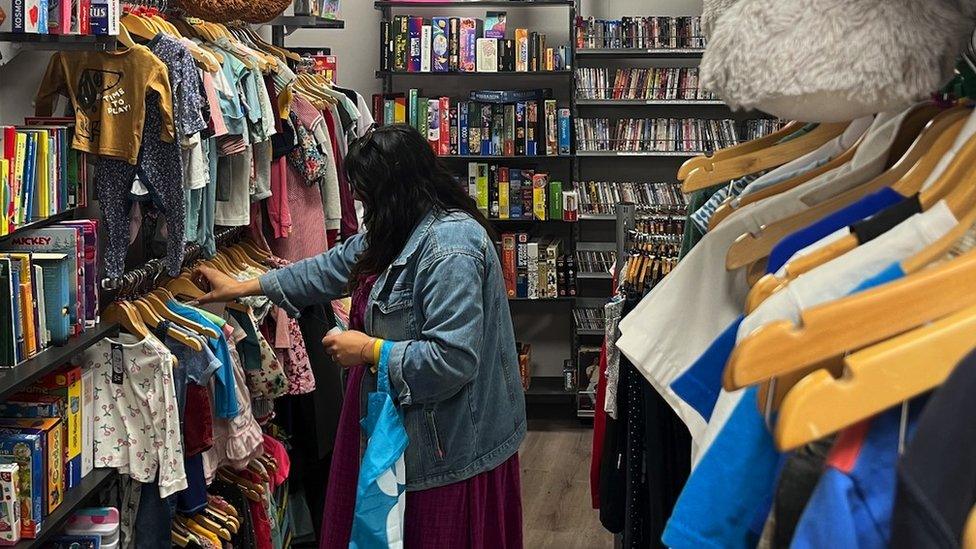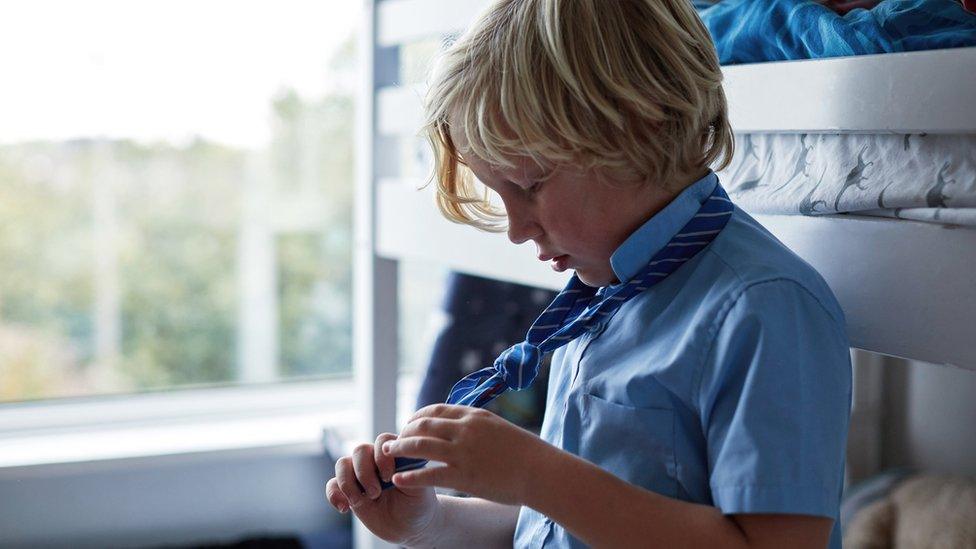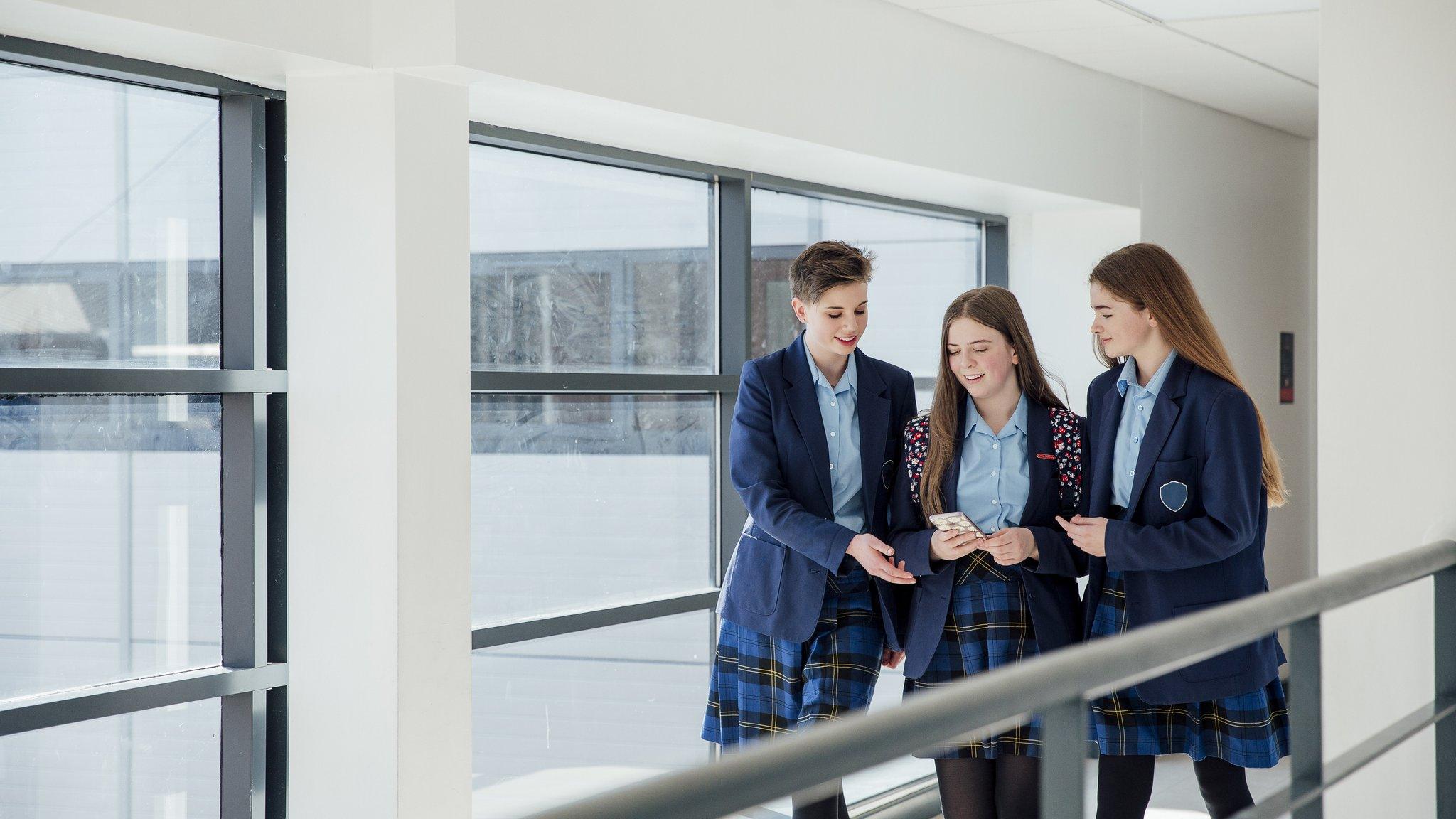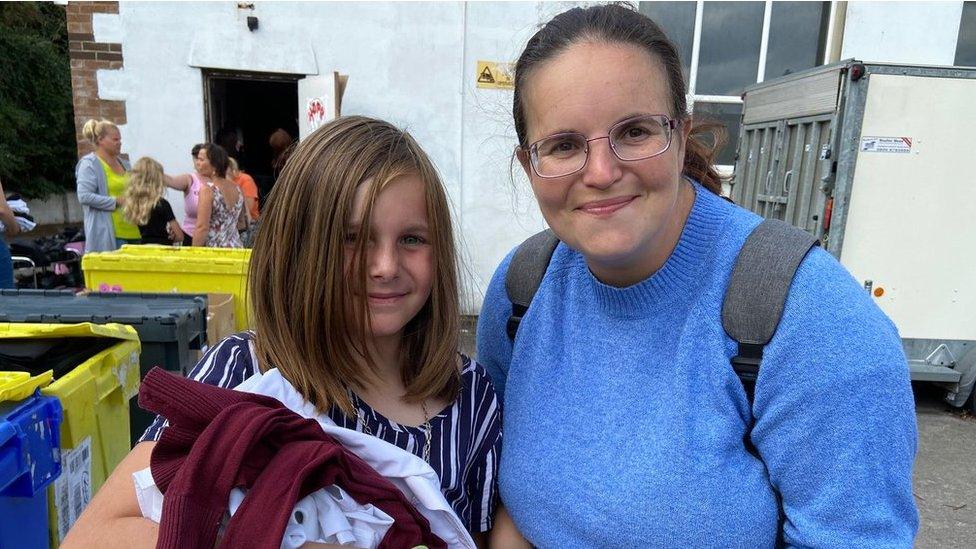'More than half' of parents would buy school uniforms at charity shops
- Published

Scope is a disability equality charity
More parents are considering getting their children's school uniforms from charity shops as the cost-of-living crisis bites, a charity has said.
In a survey of more than 2,000 people, the disability equality charity Scope found that 55% of parents would buy second-hand school clothes.
The manager of Scope in Taunton, Jo Holt, said people are being more "careful" with money.
Scope is asking for donations of unneeded school clothes.
Of the 2,000+ surveyed, the question about uniforms was not applicable to 35%.
Around 55% of the rest said they would buy second-hand uniforms, according to a spokesperson for Scope.
In June, the Children's Society reported that many parents are paying "alarming amounts" for school uniforms.
It said parents spend on average £422 a year on secondary and £287 on primary uniforms, with branded items costing more.
Scope is asking parents to donate old or unwanted clothes, including school uniforms, that could still be of use to others.

Ms Holt said: "Beyond benefitting the charity itself, there is the environmental side too"
"We invest a lot of time and effort in making sure every item we sell is top quality," said Ms Holt.
"There's so many people going through a hard time at the moment."
Scope's head of retail, Debbie Boylen, said: "The pressure on families' budgets shows no sign of abating and cash-strapped families are discovering it makes good financial sense to get school uniforms and their children's [other] clothes at charity shops.
"Children grow up so quickly. [So] it's easy to see why charity shops are becoming the number-one destination for families."
The government has said it was working to ensure "uniform costs are reasonable", with changes to the Education Act last year intended to help cut costs for parents.
Since the cost of living crisis began, the charity said it has found that calls to its Disability Energy Service, external are "higher than ever".

Follow BBC West on Facebook, external, Twitter, external and Instagram, external. Send your story ideas to: bristol@bbc.co.uk , external
Related topics
- Published28 June 2023

- Published24 July 2023

- Published14 June 2023

- Published1 September 2022
